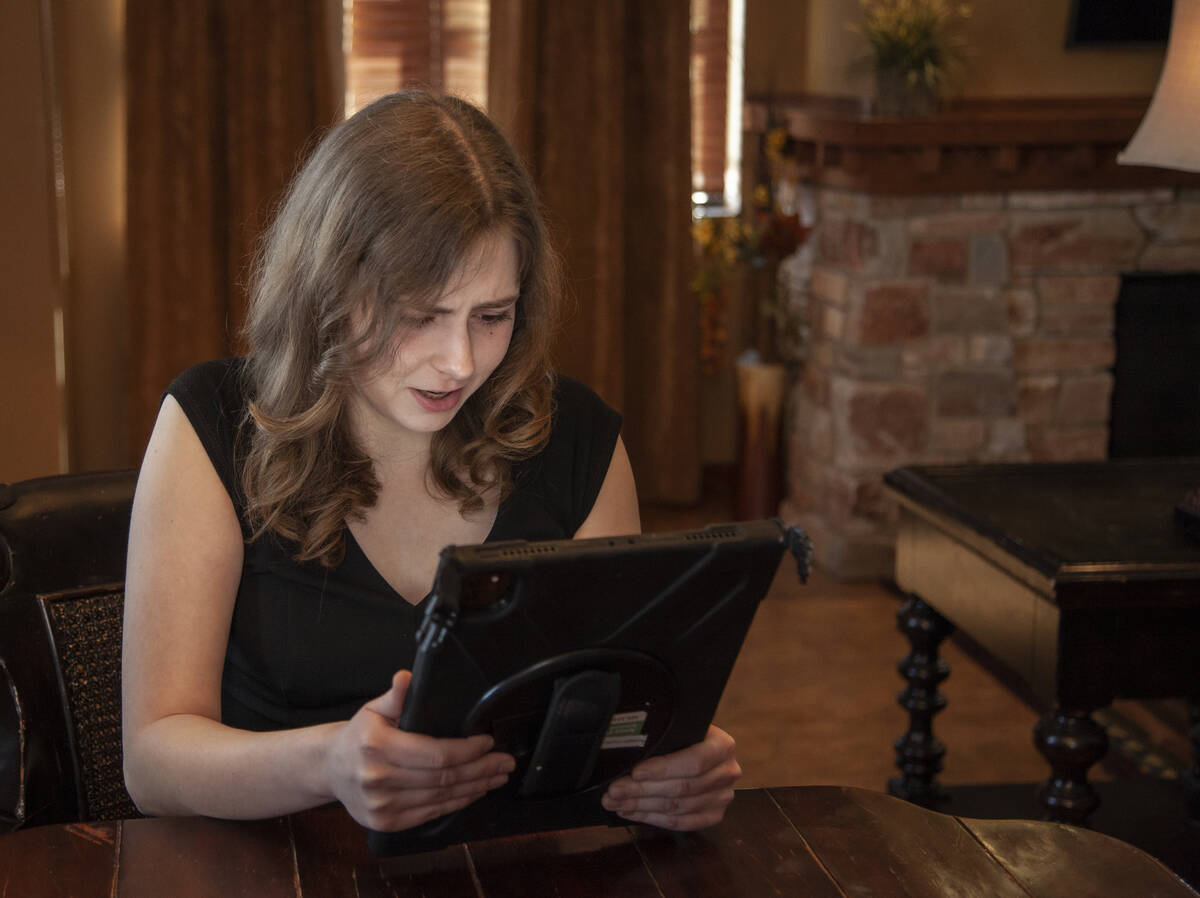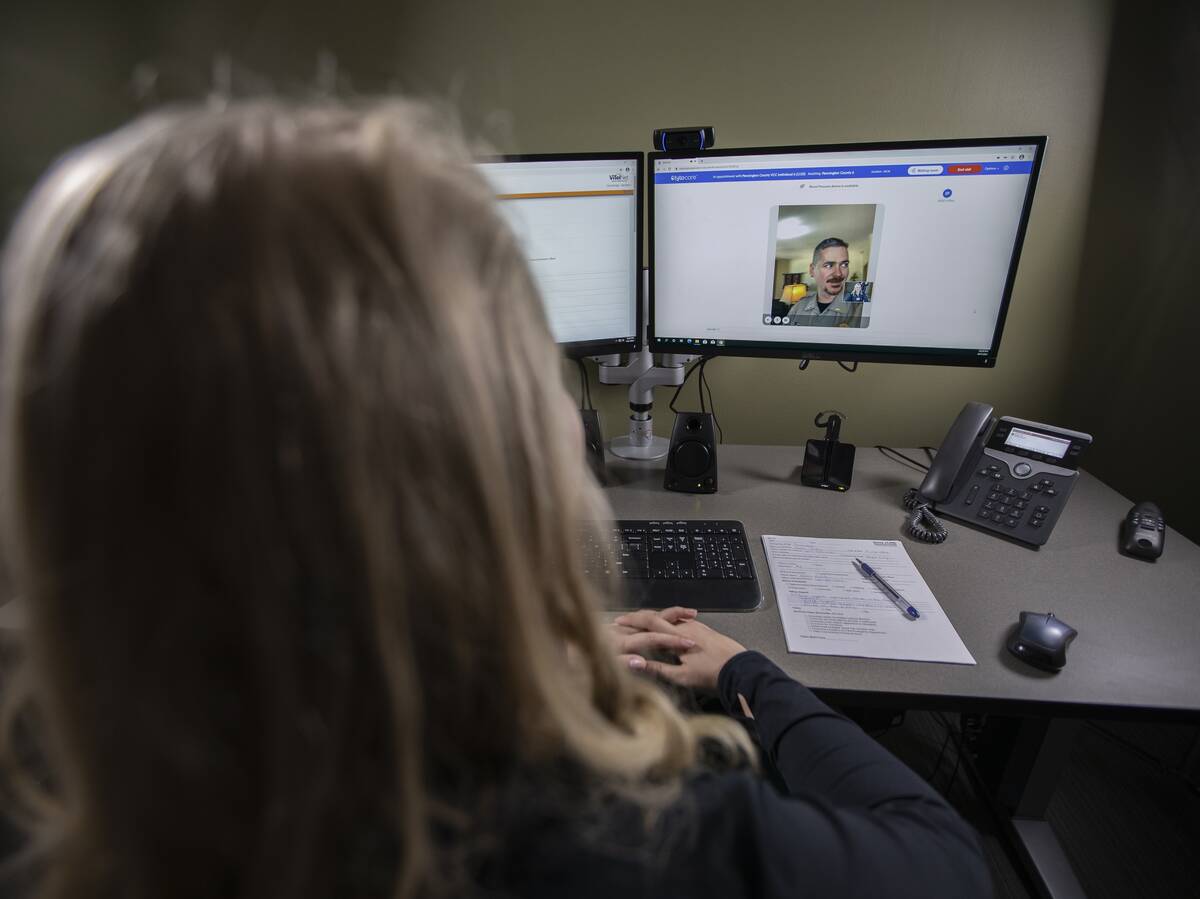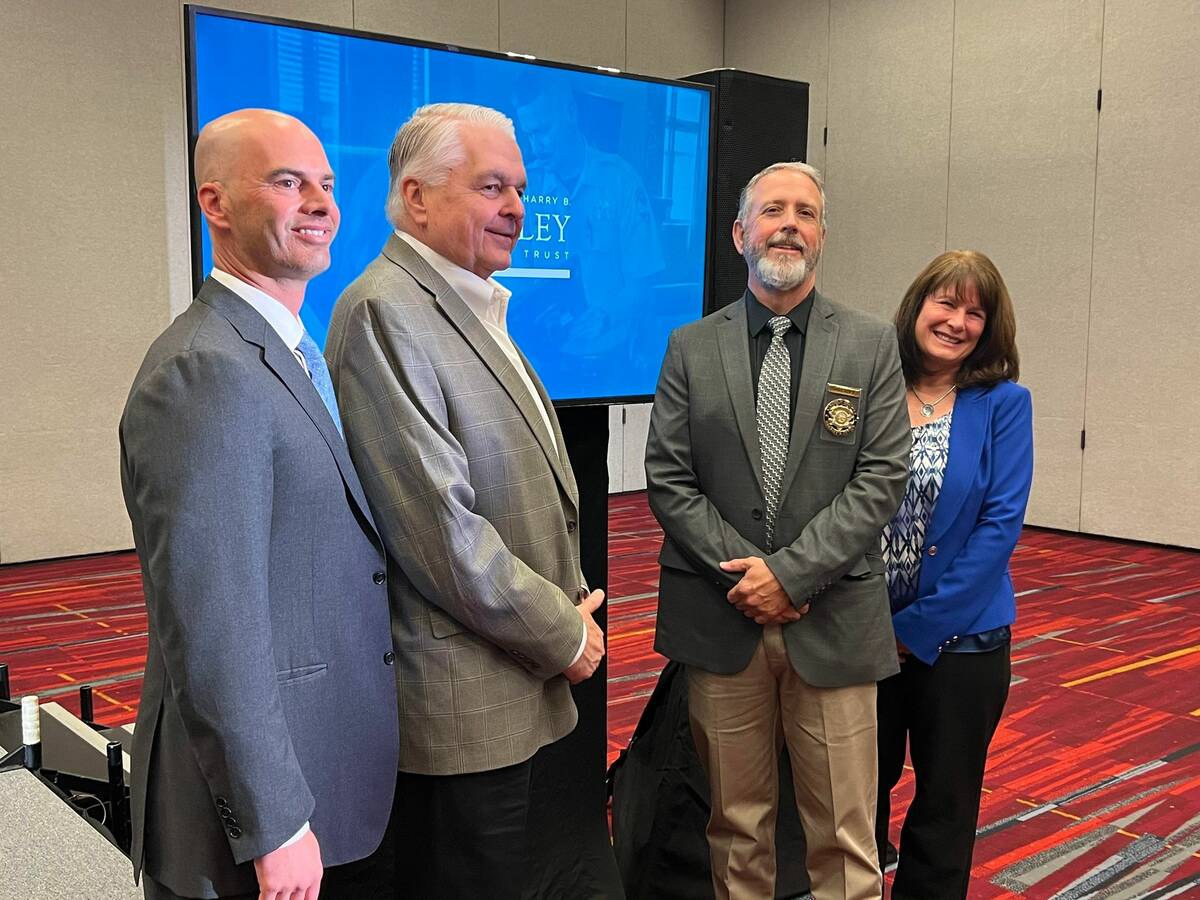$3.8M grant aims to help rural mental health
When Lincoln County Sheriff Kerry Lee first joined the sheriff’s office more than three decades ago, he said there was a mental health call roughly once a month.
Now, Lee said, his deputies deal with mental health calls weekly, if not daily.
“I have never seen law enforcement being asked to do more than they are right now,” Lee said. “Officers are being asked to do things that we were never trained to do.”
Lee spoke Wednesday about the experience of responding to mental health calls as Nevada received a $3.8 million grant to fund a pilot program that will allow law enforcement officers to virtually contact behavioral health specialists as they respond to mental health calls in rural parts of the state.
The grant was given by the Helmsley Charitable Trust, which funds medical initiatives in rural parts of states.
With the grant, the Nevada Department of Health and Human Services will provide 11 law enforcement agencies with “super-sized” iPads to call mental health specialists during calls to help assess and determine next steps for individuals experiencing a mental health crisis.
A similar pilot program in South Dakota has seen 80 percent of calls where individuals were diverted from involuntary hospitalization and jail, according to Mitch Krebs, program director for Helmsley’s rural health care program.
“Nobody having a mental health care crisis should be in jail or should be headed to jail unless they committed a crime,” Helmsley trustee Walter Panzirer said. “They need help, and that help is sometimes at a hospital, sometimes the help could be referred back into a community and save that deputy’s time from driving across Nevada to bring them to a hospital that they may not need to go to.”
Many departments participate
The grant will fund the virtual call services in half of Nevada’s counties to start. The 11 law enforcement agencies that will participate in the program are:
■ Carson City sheriff’s office.
■ Eureka County sheriff’s office.
■ Elko Police Department.
■ Humboldt County sheriff’s office.
■ Lander County sheriff’s office.
■ Lincoln County sheriff’s office.
■ Mesquite Police Department.
■ Washoe County sheriff’s office.
■ West Wendover Police Department.
■ White Pine County sheriff’s office.
■ Winnemucca Police Department.
This month, the Nevada Legislature’s Interim Finance Committee approved a $1.3 million installment of the grant that will fund the program.
Panzirer said, if proved successful, there could be plans to expand the program to more parts of Nevada, based on the success of the pilot program in South Dakota.
Need a ‘caring ear’
Misty Vaughan Allen, Nevada’s suicide prevention coordinator, said a majority of people involved in mental health calls just need a caring ear and a qualified mental health professional who can connect them to help.
“That can make all the difference in the world, and this virtual crisis care fills that critical gap, especially in our rural communities where sometimes it can be five, six, seven hours to transport someone to care that isn’t even guaranteed access,” she said.
When an officer or deputy responds to a mental health call, they ask basic questions that determine whether a person in crisis should stay at home or be taken to a behavioral facility or to jail, according to Krebs.
“You’re putting a lot of extra burden on folks who don’t necessarily have as much training as a trained professional in the behavioral world,” he said.
With the new virtual care system, individuals can be connected through the iPad to a trained behavioral professional while the officer watches nearby. The healthcare professional will be able to ask more questions and determine whether the individual can stay at home or if they need to be transported to a hospital or to a jail.
The health care professionals will also follow up with individuals after the initial call and connect them with local mental health resources.
The virtual, telehealth assistance provides a more thorough approach, driven by best behavioral health practices, that will take the decision-making process out of the hands of a deputy or police officer, Krebs said.
Saving deputies’ time
For Lee, the Lincoln County sheriff, it also frees up more time for his deputies, who are already stretched thin on resources.
“I think that is a huge thing we have been lacking over the years is somebody to follow up with these people,” he said. “If we don’t follow-up, guess what, next week we’re going to be dealing with them again … it’s a revolving door.”
Lee oversees a county of nearly 11,000 square miles, larger than some states. With just a dozen patrol officers, and another half-dozen that staff the Lincoln County jail, attending to mental health calls in the sparsely populated county means his deputies will sometimes drive three hours one way attending to mental health calls.
If a deputy needs to accompany an individual to the hospital or jail, it can take up to seven hours, nearly a deputy’s entire shift.
“Law enforcement officers are being asked to do more and more, with less and less, with less support,” he said.
Many of these mental health calls come from individuals who don’t belong in jail, Lee said, and states and law enforcement agencies need to find more innovative solutions to address the problem.
The new telehealth program is just one solution, he said.
“Do I think it’s going to solve all the problems? No,” Lee said. “But I think it could help.”
Contact Lorraine Longhi at 480-243-4086 or llonghi@reviewjournal.com. Follow her @lolonghi on Twitter.






























